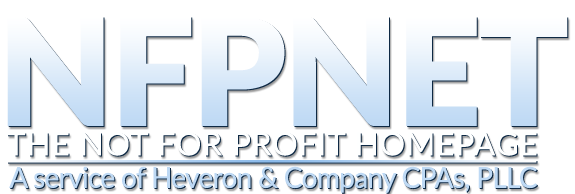Pre-grant Inquiry
For pre-grant due diligence, an organization should create a policy specifying the types of grants and amounts given, types of organizations that qualify, purposes and activities that qualify, timelines, the application and approval process, responsible and authorized personnel, and file management and retention. Organizations should create a process for receiving, reviewing, and evaluating requests for funding. Application materials may include:
a proposal or letter of request;
information on the project to be funded;
organizational documents;
proof of 501(c)(3) exemption;
proposed budgets for the organization and the project;
audited financial statements;
prior years’ Forms 990;
information regarding personnel involved in the project; and
information on other sources of support (assuring continuity of the program).
Grant Documentation and Monitoring
Once a grant is approved, the organization should execute a grant agreement that describes the terms of the grant and what is expected of the grantee. It may include:
grantee’s responsibilities;
grantee’s reporting requirements;
grantor’s responsibilities;
amount of the grant and payment schedule;
purpose of the grant;
duration of the grant;
description of the project that is being funded (sometimes references grant application);
commitment of the grantee to use the funds for that purpose;
specifications of prohibited uses of the grant funds;
provision for unexpended funds;
requirement that the grant is paid back if the money is not used for the intended purpose;
reporting requirements of the grantee, including changes in exempt status or key personnel;
grantor’s right to terminate or revoke the grant if the grant terms are not met; and
procedures for requesting modifications to the grant terms.
Although current tax law does not require reporting by the grantee to domestic public charities, it is a recommended practice. Depending on the size, type, and terms of the grant, organizations might consider requiring an annual reporting that may include a financial report showing how the money was spent and a narrative of accomplishments. The requirement could vary depending on the amount or type of grant or type of grantee. The organization should evaluate the report and indicate in its policy or procedures the persons responsible for the evaluation. If the grant is funded over a number of years, it is common to require reports prior to releasing the subsequent year’s grant funds. This insures that the charity receives timely reports as to the results and effectiveness of the grant.
Post-Grant Procedures
Grant closing procedures are not always formally done. However, the grant closing process is a good opportunity to assess the outcome of the program. Establishing a grant closing procedure is a recommended best practice. The grant closing process should begin within a reasonable time after the last payment has been made and the final reporting from the grantee has been received. A closing procedure may include:
notifying the grantee that the final report or any other required documents are due or that all requirements have been fulfilled;
evaluating the grant;
reporting to the board;
file management; and
recommendation as to whether the organization would recommend future grants to the grantee either for its own purposes or if other funders inquire.
The IRS has not issued Treasury Regulations for Code Sec. 4966 as of this publication. For now, it is reasonable to rely on the requirements of Code Sec. 4945(h), which are referenced in Code Sec. 4966. One unresolved issue is the final requirement of expenditure responsibility oversight, “to make full and detailed reports with respect to such expenditures to the Secretary” (Code Sec. 4945(h)(3)).
Foreign Grant Procedures
Organizations that give foreign grants have additional recommended procedures. They should follow the pre-grant, grant monitoring, and post-grant procedures, as well as comply with Executive Order 13224, the Patriot Act, and Treasury Guidelines.
On September 23, 2001, the President issued Executive Order 13224,”Blocking Property and Prohibiting Transactions with Persons who Commit, Threaten to Commit, or Support Terrorism.” The executive order can be violated even where the grantmaking organization lacks knowledge that it is engaging in a prohibited transaction.
As part of the campaign against terrorist financing, all U.S. persons, including U.S.-based charities, are prohibited from dealing with individuals and entities identified as being associated with terrorism unless first authorized by the Treasury Department’s Office of Foreign Assets Control (OFAC).
The Patriot Act, passed in October 2001, also prohibits material support to terrorists. For grantmakers, the Patriot Act prohibits an organization from willfully providing or collecting funds with the intention or knowledge that such funds will be used to carry out acts of terrorism.
Thus, checking the Specially Designated Nationals and Blocked Persons List (SDNs) database (www.treasury.gov/resource-center/sanctions/SDN-List/Pages/default.aspx), maintained by the Office of Foreign Assets Control, and the Foreign Terrorist Organizations List (FTO) (www.state.gov/j/ct/rls/other/des/123085.htm), maintained by the U.S. Department of State Bureau of Counterterrorism, should be part of the pre-grant procedure followed by organizations making foreign grants. Charities should not enter into a relationship with a grantee where any doubt exists about the grantee’s ability to ensure that the grant does not find its way to terrorist organizations. Organizations should also consider safeguards in any downstream sub-grantees to protect charitable resources from exploitation by terrorists.
The U.S. Department of the Treasury Anti-Terrorist Financing Guidelines: Voluntary Best Practices for U.S.-Based Charities, issued in 2002 and revised in 2006, provides clear guidance for charities involved in foreign grantmaking (see full text at Appendix AC).
In addition, the U.S. Department of the Treasury has also published a risk matrix for organizations to assess the risk of potential grants. The higher the risk, the more due diligence the grantmaking organization should undertake to ensure the proper use of grant funds. Lower risk grants require less additional due diligence than the baseline due diligence performed on all grants made by the organization.
